Atheism and the Personal Pronoun
by Patrick Schultz
Filed under Anthropology, Atheism

The overwhelming majority of atheists today are also materialists. Ousting God implies an evacuation of all things “spiritual,” leaving behind only blind, brute, bits of matter. Whichever one arrives at first—whether materialism or atheism—is really inconsequential; one usually follows the other. Concerning galaxies and stars, materialism seems unthreatening. After all, these are material, natural phenomena that we can understand, explain, and model according to material causes;... Read More
Science Reveals Who We Are is Determined by How We Are
by Dr. Benjamin Wiker
Filed under Anthropology, Science
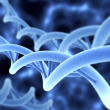
According to scientific orthodoxy, all living things were entirely determined by their genetic code. Hence the neo-Darwinian motto: DNA is destiny. But the latest news from researchers is that DNA is not destiny. As an article in Discover Magazine makes clear, the science of epigenetics has some humbling news for predestination scientists of genetics. Neither human beings nor any other animal is reducible to the nucleotide sequence in DNA. Instead, who we are is also determined by how... Read More
Monogenism or Polygenism?: The Question of Human Origins
by Dr. Edward Feser
Filed under Anthropology, Evolution
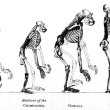
NOTE: Today we finish our two part series by Dr. Edward Feser exploring questions about evolution, creation, faith, and human origins. You can read the first part here. How can the doctrine of original sin be reconciled with what contemporary biology says about human origins? For the doctrine requires descent from a single original ancestor, whereas contemporary biologists hold that the genetic evidence indicates that modern humans descended from a population of at least... Read More
Knowing an Ape from Adam
by Dr. Edward Feser
Filed under Anthropology, Evolution
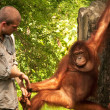
NOTE: Today we begin a two part series by Dr. Edward Feser exploring questions about evolution, creation, faith, and human origins. We'll share the second part on Friday. On questions about biological evolution, both the Magisterium of the Catholic Church and Thomist philosophers and theologians have tended carefully to steer a middle course. On the one hand, they have allowed that a fairly wide range of biological phenomena may in principle be susceptible of evolutionary... Read More
Do Catholics Know Their Theology is Correct?: A Response
by Brandon Vogt
Filed under Belief
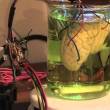
NOTE: On Monday we featured a guest post by one of our non-Catholic contributors, Steven Dillon, titled "Do Catholics Know Their Theology is Correct?". Today Catholic writer Brandon Vogt responds. Before beginning my response to Steven Dillon's thoughtful article at Strange Notions, "Do Catholics Know That Their Theology is Correct?", I want to first thank him for contributing. I've long admired Steven's clarity, good-will, and irenic approach. It's always a delight to interact... Read More
Do Catholics Know That Their Theology is Correct?
by Steven Dillon
Filed under Belief
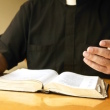
NOTE: Today we feature a guest post from Steven Dillon, one of our regular non-Catholic commenters. On Wednesday, we'll share a response from Catholic writer Brandon Vogt. This site is primarily a forum for dialogue between Catholics and atheists. We can see this clearest on the part of the Catholic contributors who post about everything from the influence of Catholicism on science, and the crusade history to Marian apparitions and Catholic policy in the public school system. By... Read More
Why Believe?
by Carl Olson
Filed under Belief, Faith, New Atheists
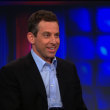
"Faith is always at a disadvantage; it is a perpetually defeated thing which survives all of its conquerors," wrote G. K. Chesterton. Faith is the Christian word. Avery Cardinal Dulles, S.J., in his masterful theology of faith, The Assurance of Things Hoped For, writes, "More than any other religion, Christianity deserves to be called a faith". He points out that in the New Testament the Greek words for "faith" and "belief" occur nearly 500 times, compared to less than 100 for "hope" and... Read More
Prayer, Science, and the Existence of God
by Trent Horn
Filed under Belief, Science, The Existence of God

Can science find God? If God is defined as a being (or perhaps “the ground of being”) that is neither composed of matter nor confined to a spatial location, then the answer seems to be no. After all, science is limited to explaining the natural, physical world. If God exists beyond that world and is not composed of anything found within it, then he seems to be out of the reach of scientific inquiry. But even if science can’t “find” God in the same way I can find my car in a parking... Read More
From Atheist Professor to Catholic: An Interview with Dr. Holly Ordway
by Brandon Vogt
Filed under Atheism, Conversion, Interviews
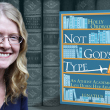
Growing up, Holly Ordway was convinced God was little more than superstition, completely unsupported by evidence or reason. She later attained a PhD in literature, traveled the country as a competitive fencer, and became a college English professor, none of which left room for God. But one day a smart and respected friend surprisingly revealed he was a Christian. That sent Holly on a search for the truth about God, one that weaved through literature, aesthetics, imagination, and history.... Read More
What is a Soul?
by Dr. Edward Feser
Filed under Anthropology

What is a soul? Or to be more precise, what is a human soul? Or to be even more precise, what is a human being? For that is really the key question; and I sometimes think that the biggest obstacle to understanding what the soul is is the word “soul.” People too readily read into it various erroneous notions (erroneous from an Aristotelian-Thomistic point of view, anyway)—ghosts, ectoplasm, or Cartesian immaterial substances. Even the Aristotelian characterization of the... Read More






